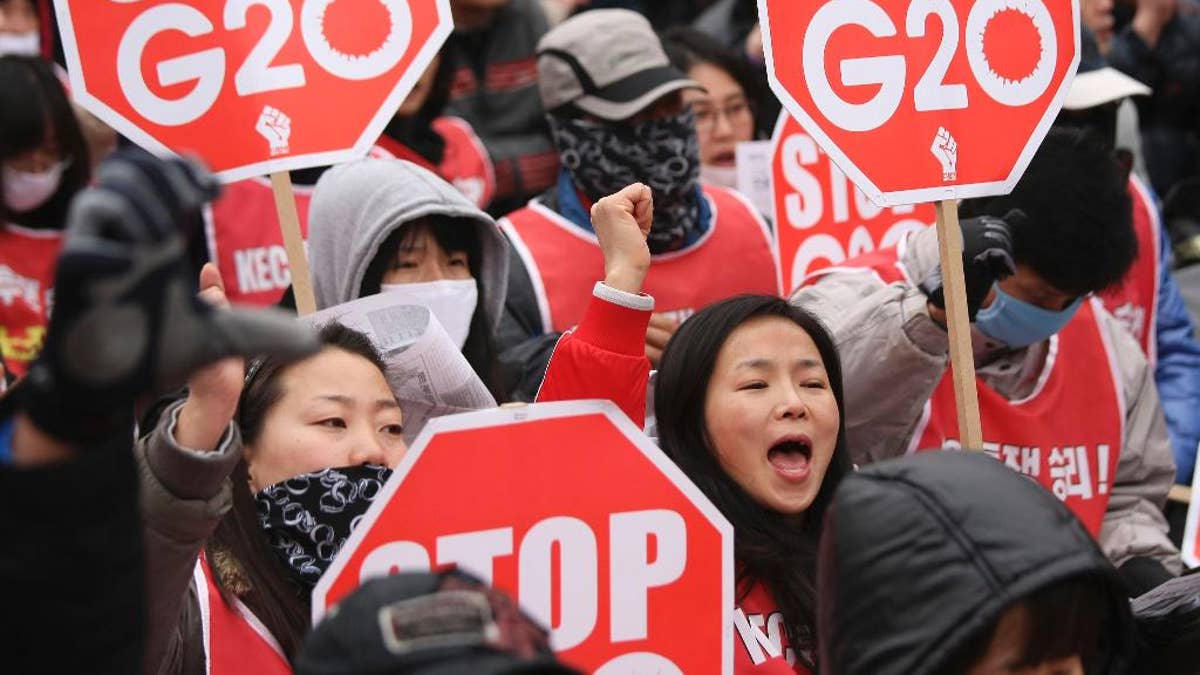
FILE - In this Thursday, Nov. 11, 2010 file photo, protesters gather to denounce the G-20 Summit. Since 2010, the G-20 has issued two-year action plans on anti-corruption efforts, and a report on what has been achieved under the last plan is expected at this weekend's summit. The leaders will also issue a new plan for 2015-16, which is expected to include commitments on issues such as foreign bribery, stolen asset recovery and whistleblower protection, said A.J. Brown, a director with Transparency International Australia. (AP Photo/Wally Santana, File) (The Associated Press)
BRISBANE, Australia – Corruption is a perennial topic for the G-20, with leaders dubbing it a threat to global growth, and activists arguing it hurts the poorest countries the most by siphoning away desperately needed money that could be used to improve health systems, schools and roads.
Washington, D.C.-based advocacy group ONE has urged leaders to make the issue a top priority at this weekend's summit in Brisbane after recently releasing a report that estimates money laundering, bribery and tax evasion cost the developing world more than $1 trillion a year. The group also estimates that as many as 3.6 million deaths could be prevented if money drained from the poorest countries by corruption was invested in health systems.
Anti-corruption group Transparency International, Amnesty International and other human rights groups have urged G-20 leaders to deliver concrete results at the summit, calling in particular for a crackdown on the use of shell companies that hide the true owners of businesses. Anti-corruption advocates want public registries created that would show who actually owns and benefits from companies.
Since 2010, the G-20 has issued two-year action plans on anti-corruption efforts, and a report on what has been achieved under the last plan is expected at this weekend's summit. The leaders will also issue a new plan for 2015-16, which is expected to include commitments on issues such as foreign bribery, stolen asset recovery and whistleblower protection, said A.J. Brown, a director with Transparency International Australia.
